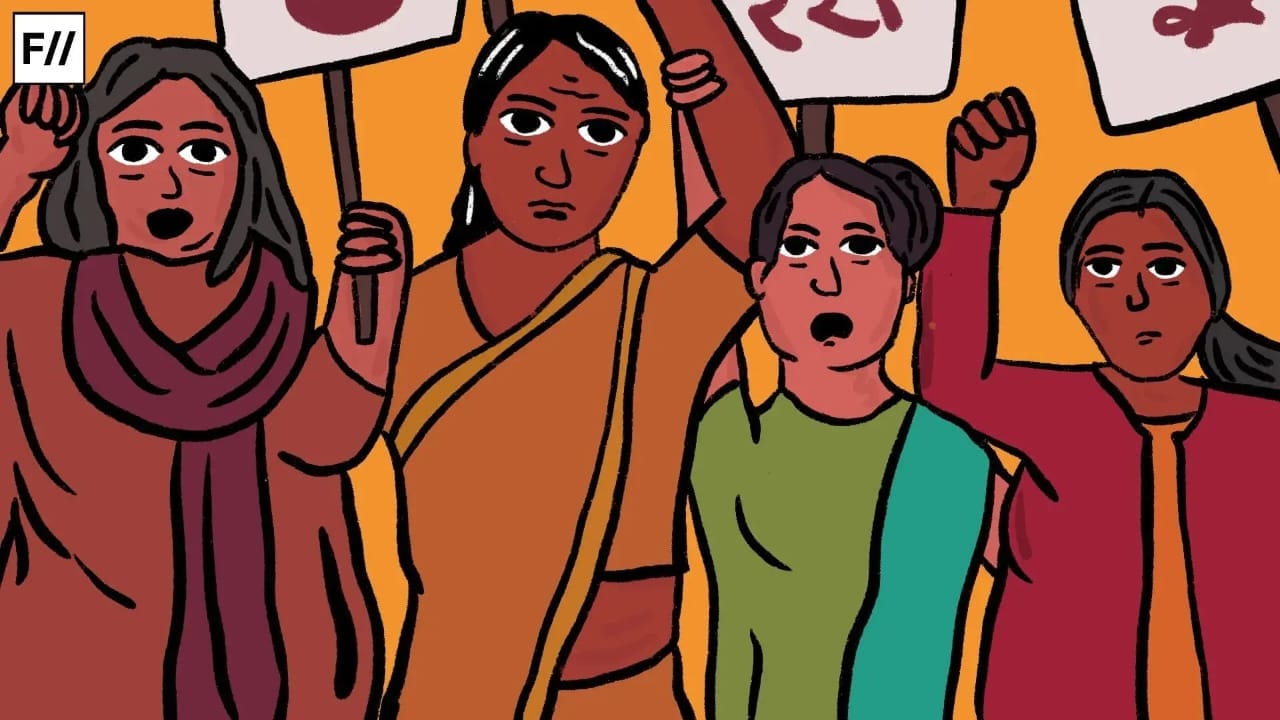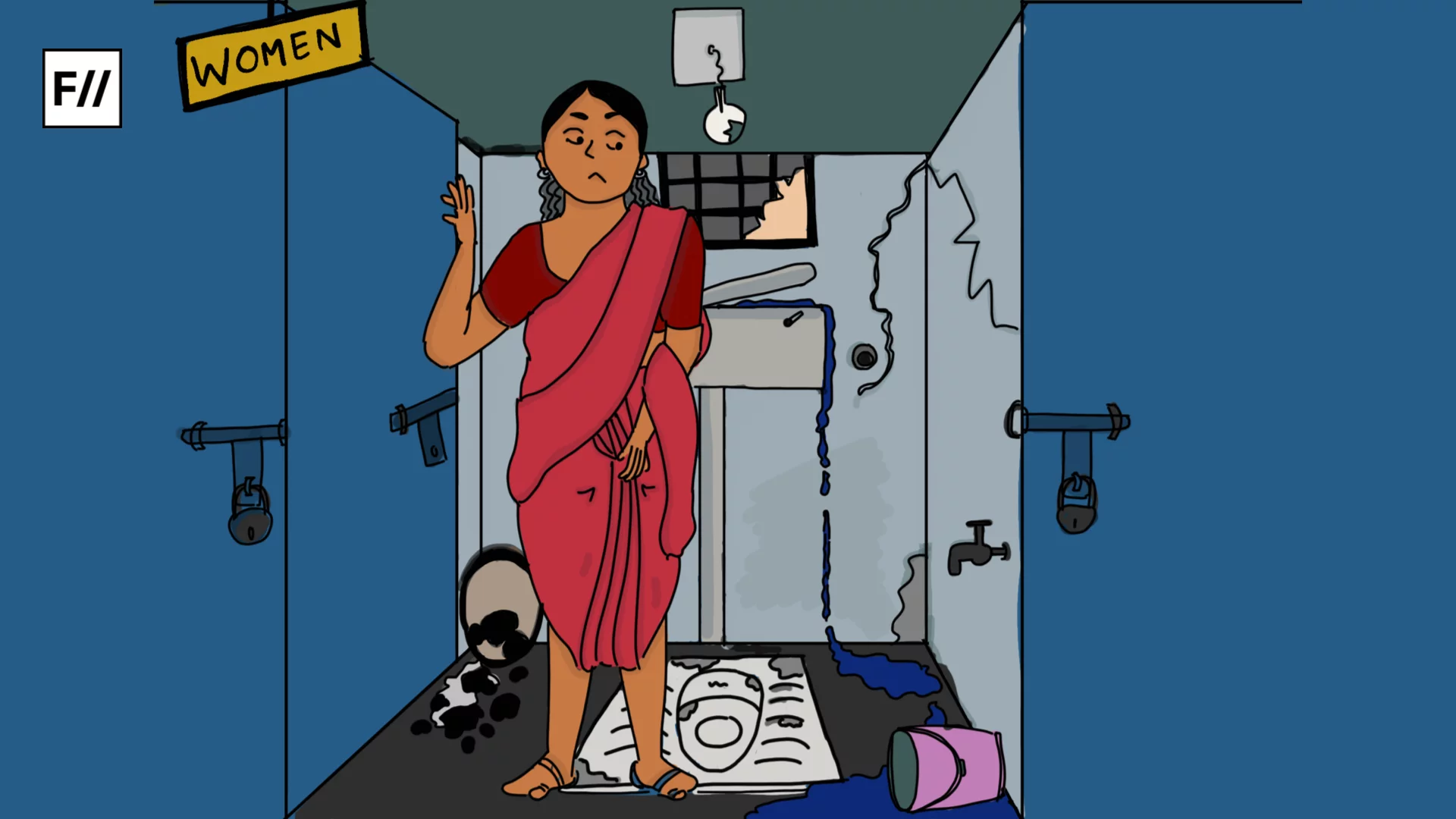“You cook?!” asked my neighbour in a traditional part of Hyderabad recently. Apparently, and this is not the first time, the sight of a tall, English-speaking ‘modern’ woman with short hair runs contrary to the image of a woman who loves the kitchen. Indeed women like me find ourselves very often assaulted with incredulous questions such as the one above, both by our ‘modern’ peers- young, urban people – and older generation of uncles, aunties, and traditional female homemakers. Recently, as if almost to prove a point, an academic colleague of mine, a young woman in her early 30s, posted a picture of a perfectly made couscous salad on her Instagram. It was captioned “I can do a PhD and I can cook at the same time.”
In many ways I can understand the genesis of this image of a modern ‘feminist’ woman who believes in having a job and equal rights and who exudes a certain amount of sexual and social autonomy that must be antithetical to a woman willing to spend hours in the kitchen to create delicious, nutritious food for herself and her family. How is that possible? Indeed, if one considers the reality of modern, capitalist urban life, women are expected both to work outside home while traditional gender roles keep them tied to housework like cooking, cleaning and child rearing.
While it is precisely women’s labour of social reproduction at home that actually sustains the labour and economy of the global capitalist market, this unremunerated work is not considered formal labour and looked down upon. So how can the aspirational ideal of a modern working woman appear compatible with the image of a woman who loves the kitchen by women themselves? After a exhausting day at work the kitchen is the last place they want to be in, the kitchen is such a huge symbol of patriarchal oppression, and finally it is the kitchen where their greatest labour of nourishing families remains the most unappreciated.
Also read: What Does Food Have To Do With Gender?
My own interest in food started later in my life, only in my late 30s. Like a lot of us, I have always been a foodie. Raised on a steady, healthy and tasty diet of homemade delicious Indian food in a family that extensively travelled across the country and South East, I was raised to appreciate food in all its different flavors and varieties. So when I moved to the US in my 20s, it was on the one hand my own inability to cook mixed with the nostalgia of my mother’s cooking that made me think of food and on the other hand it was sex. Yup – like many urban middle-class independent women, my experiments with sex and sexuality started in my 20s and a couple of most erotic encounters I remember involved food and sex.
If food is such an intimate part of my emotional, physical and sexual nourishment, who can I trust the most to take this responsibility?
These highly contradictory associations of food, now on hindsight, have made me realise something. If food is such an intimate part of my emotional, physical and sexual nourishment, who can I trust the most to take this responsibility? Does highly processed restaurant food seasoned with tons of salt have the capacity to nourish my body and soul or the seasonal fresh produce that I lovingly choose and transform to edible food by cooking it myself?
As a woman with Polycystic Ovarian Syndrome (PCOS) and unexpectedly pregnant in my early 30s I suddenly had to start cooking at home in order to make healthy food. But even back then I was neither really invested in the act of cooking for my self nor as a proud ‘modern’ woman saw much merit in it. Cooking was a huge time consuming chore in a big city where I had to juggle between work, baby, getting my Masters, and maintaining a relationship with my partner. So I was all about quick and easy ‘healthy’ recipes, without really questioning what ‘healthy’ was- is (chemical filled commercial) brown bread really healthy? How can eating factory farmed lean meat like chicken be healthier than occasionally indulging in free range red meat mutton?
It was only with the birth of my second child, my daughter, who developed severe eczema in infancy and my own immersion in radical, queer, caste defiant, ecological feminist politics as a woman of colour in US academia that cooking nutritious food with a conscious effort and investment in local produce, environmental protection, spices, and historical cooking techniques, that cooking became a serious passion and political feminist act. Therefore cooking has gone hand-in hand with my own feminist awakening.
This has been a journey of understanding the intersectionality of systemic oppressions – the deeply connected nature of food production, nutrition and evil capitalism; and the futility of talking about self care as a feminist act without looking at these connections and committing oneself to the basic act that takes self love and nourishment into ones own hands- cooking. As this feminist journey has developed and deepened over the years, so has the value of cooking in my life.
In a café once as a Savarna woman I was told by a Dalit feminist friend a very interesting anecdote. She told me how she once asked a very elderly Dalit woman who had aged beautifully about the secret of her youthful good looks. The woman had apparently told her that it all lay in her cooking. As a Dalit woman, she had learned not to trust anyone with her life and body from a very young age, especially with her nutrition. She had had neither the privilege to eat out or hire someone to cook for her nor the desire. “Some people put magic and evil spirits in what they concoct for you. Always eat simple home cooked meals, and see how far that takes you” she had told my friend.
Not only did those words stand out as a feminist defiance and ultimate manifesto of what we Savarna, bourgeois, middle class women like to call ‘self care’ in our privileged lingo, but also signified the strongest anti-capitalist stance an individual could take. As one the most oppressed segments of this casteist society, this elderly woman had condensed caste defiance, capitalistic promulgation of unhealthy food habits and restaurants, and female aesthetics into a single act. The act of cooking one’s own meals.
Recently in a house party in Hyderabad, surrounded by fellow bourgeois friends, I was accused of privilege by a younger, cis-femme feminist, while trying to explain my reasons for viewing cooking as a feminist act. “That’s privilege talking” she said. “You can make a conscious choice to cook but how many women can? They have to cook and their role in the kitchen is their destiny and they probably don’t want to do it.” And I couldn’t agree more. I am indeed privileged to be able to get a higher education, do feminist studies for a living (that has enabled me to realise the power of cooking), and indeed decide not to cook everyday if I don’t want to and eat out.
As a matter of fact, it is my privilege that also enables me to buy fresh, organic produce at a time when it remains inaccessible to people who actually produce it.
As a matter of fact, it is my privilege that also enables me to buy fresh, organic produce at a time when it remains inaccessible to people who actually produce it. However, this privilege also allows me to challenge the gendered labour and consequent devaluation of home cooking vis-à-vis elitist gourmet chef cooking (usually done by men) and prevents me from hiring the labour of a woman for pittance just so that she can afford to cook and feed her own family and also helps me take charge of nourishing my own body and my children while being environmentally savvy and mindful of healthier traditional cooking techniques.
So that’s why I cook. I cook because I have the privilege but also lack it. I cook because I am a student on a shoestring budget and so is my husband and we have two kids to feed. I cook because cooking aligns with my feminist politics of loving thyself, loving thy family and friends, and loving thy environment. I cook because as a feminist I see cooking not as a caste/class/gender bound duty but as a means through which bodies labour to feed themselves, thereby slowly transforming a caste and religion based politics to one based on human bodies and desires.
Also read: Thank You Media, For Enabling The Gendering Of Food
I cook because my husband cooks too and I don’t see why my simple home cooked food is any less valuable than the fancy cookbook stuff that he can enjoy cooking as a man. Finally I cook not only as a feminist but as a feminist educator, a teacher, whose greatest reward is to see my kids growing up to be mindful of connections between local cultures, land, healthy food, and wary of processed garbage that fills our supermarkets and watch them experimenting in the science of cooking with different textures themselves. To pass on the pride of gender neutral cooking and nourishing our bodies, the act of creating mouthwatering and sensuous delicacies from basic raw materials, and a sensibility of a more sustainable environment to the future generation is perhaps the greatest reward of all.
Featured Image Source: Quora
About the author(s)
Akanksha is a doctoral candidate at the Department of Gender, Women and Sexuality Studies, University of Washington, Seattle. She is currently on an American Institute of Indian Studies fellowship to conduct her research on desire, sexuality and citizenship in schools in India and Turkey. She loves traveling, dancing and reading and is based in Secunderabad with her spouse and two kids.




